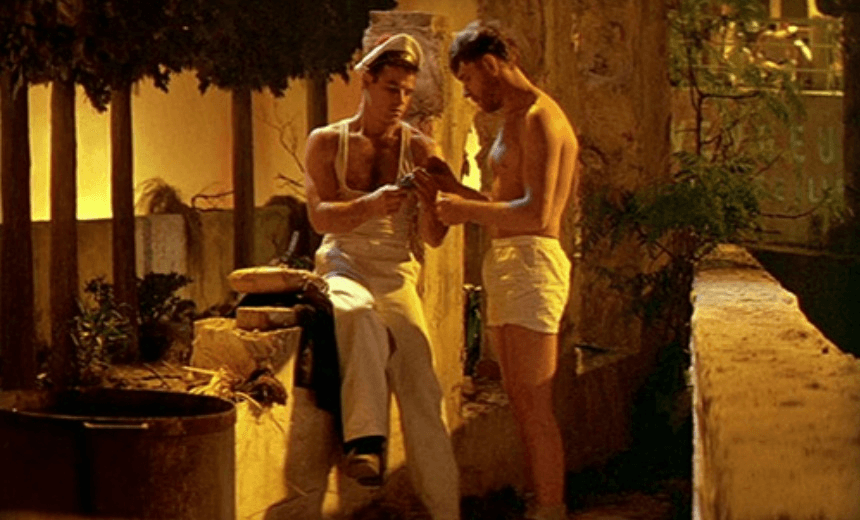Peter Wells, the director of Samesame but different, the two-day celebration of NZ’s queer writers, on the profound impact of two classic novels.
My brother was older than me by two years. He was also gay. He was ahead of me in this, and his adventures both frightened me and lured me forward. Why frighten? Because sex is a powerfully anarchic force. Introduce it and nobody knows where the thing is going to end. But I was also, as all children are, a natural spy. I kept a close eye on what he was doing and at times even shadowed him when he and another youth set off to have an amorous adventure. This really didn’t lead to much, but such is preternatural curiosity of a child turning into an adolescent that I was always alert to clues, signs or anything I at the time censoriously regarded as ‘abnormal’. It was not unusual – in fact it is not unusual – for gay boys and men to be closeted for a while, even a long while. When the whole world stigmatises something you feel is integral to your personality you experience a forcefield of disdain. It is very self destructive.
But when my brother preceded me to university he studied French. There was a certain book he had, in English, which became a subject of great interest to me. This was Genet’s Querelle of Brest. This was undoubtedly a dirty book – in fact a gloriously filthy book. It was also poetic, rhapsodic and highly erotic in parts. Everyone who was a reader – at a time when books dominated the sexual imagination – has certain phrases, even whole paragraphs from books engraved, as it were forever on their erotic memory. I seem to recall the book of Peyton Place had several terms that seemed, in themselves, extremely erotic. Just to say the words to yourself was to feel your blood thicken, your skin burn.
Querelle of Brest was this multiplied by one hundred thousand. There was in particular a scene when two men gamble, both knowing there is an erotic forcefield at play. Whoever loses will be fucked by the winner. One of the men decides he will lose, just to experience what this felt like. Genet’s description was lush, expert and – as it was meant to be – highly erotic. It involved a kind of cerebral submission as much as bodily acceptance.
The thing that astonished me was this highly calibrated sexual theatre lay inside something as inert as ink letters on a page. The pages themselves could close on one another so this secret life suddenly vanished. The book was placed back on a shelf – and unless you took it down and the book, of its own volition, opened back mimicking the surrender of the erotic act – it fell open at the good part – this book on a shelf remained no different from, for example, the Bible several books along, or a children’s book right beside it.
This was the beauty of reading – it was private and it could lead you to all sorts of secret destinations – all you had to do was open a book, submit to the long dream – and let the dream carry you to a new awakening.
*
This happened on a Friday night, just before the shops shut. My uncle was visiting Auckland from Melbourne. His mother – my grandmother – had just discreetly died. In those days pubs shut at 6pm and men generally drank themselves into numbness so they could cope with going home to the nightmare of the nuclear family. Many of these men had lived through war, with its wild anarchy, sprees of killing and abandonment of normal moral codes. The post-war period was a dampening down into what ‘people had to do’.
My uncle was the great success in the Wells family. Somehow he managed to go from Paeroa to America in the depths of the Depression. There he trained to be a chiropractor – where had this idea come from? He set himself up in Melbourne. He was a handsome man and I imagine his hands were healing just as his manner was urbane. He became rich. He had a Rolls Royce (second hand) and our rather ordinary Hampshire surname was embossed with semi-aristocratic pretension by the addition of ‘Churchill’.
The hour was late and he was drunk. He swang into Whitcome and Tombs and – who knows what the conversation was between him and the shop assistant. Was she pretty or was she one of those formidable older women who were brisk, efficient, fearsome? What was the question asked?
‘I need a book for my godson who is seven.’
‘Well, what kind of boy is he?’
There appeared to be no reaching for cowboy stories, or that nightmare staple – the Don Bradman Cricket Annual.
Instead my uncle gave me a book I treasured all through my life – I have it still.
It was Oscar Wilde’s The Happy Prince. It was a hardback. The linen cover was mauve-purple. The book was illustrated in beautiful faggish strokes by Philippe Jullian who I would come across as a young man coming out – Jullian illustrated the dissipated dukes, whoring ladies and horny stableboys in Proust’s great series.
What was the question asked?
As a seven year I happily occupied my own ignorance and bliss.
What did he see that I could not see?
What forensic gaze did this uncle possess, to choose this perfect gift for me?

